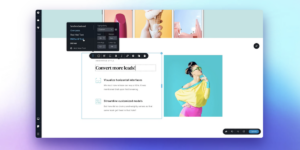In this article, we’ll review the best books for learning Node.js, covering different stacks and application types, from total beginner to enterprise-grade.
Make some room in your bookshelves, because it’s book review time! 🔖 📚
We’ve also recently reviewed the best books for learning HTML, CSS, JavaScript, PHP, Python and SQL.
Contents:- What is Node.js?
- How to Choose the Best Node.js Books?
- Best Node.js Books for Beginners
- Best Web Development with Node.js Books
- Best Full-stack Node.js Books
- Express in Action: Writing, Building, and Testing Node.js Applications
- Beginning Node.js, Express & MongoDB Development
- Beginning MERN Stack: Build and Deploy a Full Stack MongoDB, Express, React, Node.js App
- Full-Stack React Projects: Learn MERN Stack Development by Building Modern Web Apps Using MongoDB, Express, React, and Node.js
- Pro MERN Stack: Full Stack Web App Development with Mongo, Express, React, and Node
- Best Advanced Node.js Books
What is Node.js?
Node.js is a JavaScript runtime built on Chrome’s V8 JavaScript engine. Node.js is used for developing server-side, real-time web and networking applications. It can be used to create highly scalable applications by making asynchronous programming easier. Node.js is great for web applications that require a lot of input/output operations, as it’s designed to handle many concurrent connections. It’s also great for developing chat apps, real-time tracking apps, and more. You can read What Is Node and When Should I Use It? for more of the basics.How to Choose the Best Node.js Books?
There’s a lot of ground to cover with Node.js, as it’s the only technology that can be used alone for full-stack development. This is the so called “JavaScript everywhere” paradigm — coding both on the frontend and backend with just JavaScript. It wasn’t long ago that programmers had to use one language on the frontend and a different one on the backend. Here are some things to consider when picking a Node.js book:- When was it published? (This is quite relevant for a rapidly evolving technology like Node.js.)
- Do you want to use Node.js for tooling your frontend development, or are you more into server-side services?
- Are you a beginner? Or are you looking to up your existing Node.js skills? Or do you need to learn enterprise-grade coding?
- Which version of Node.js do you plan to use?
Best Node.js Books for Beginners
We’ll start by looking at books targeted at those who are just starting out with Node.js.Node.js: Novice to Ninja
- Author: Craig Buckler
- Publishing: first edition (July, 2022)
- Paperback: 410 pages
- Ranking: 5/5 on SitePoint
- Available: Online and Amazon
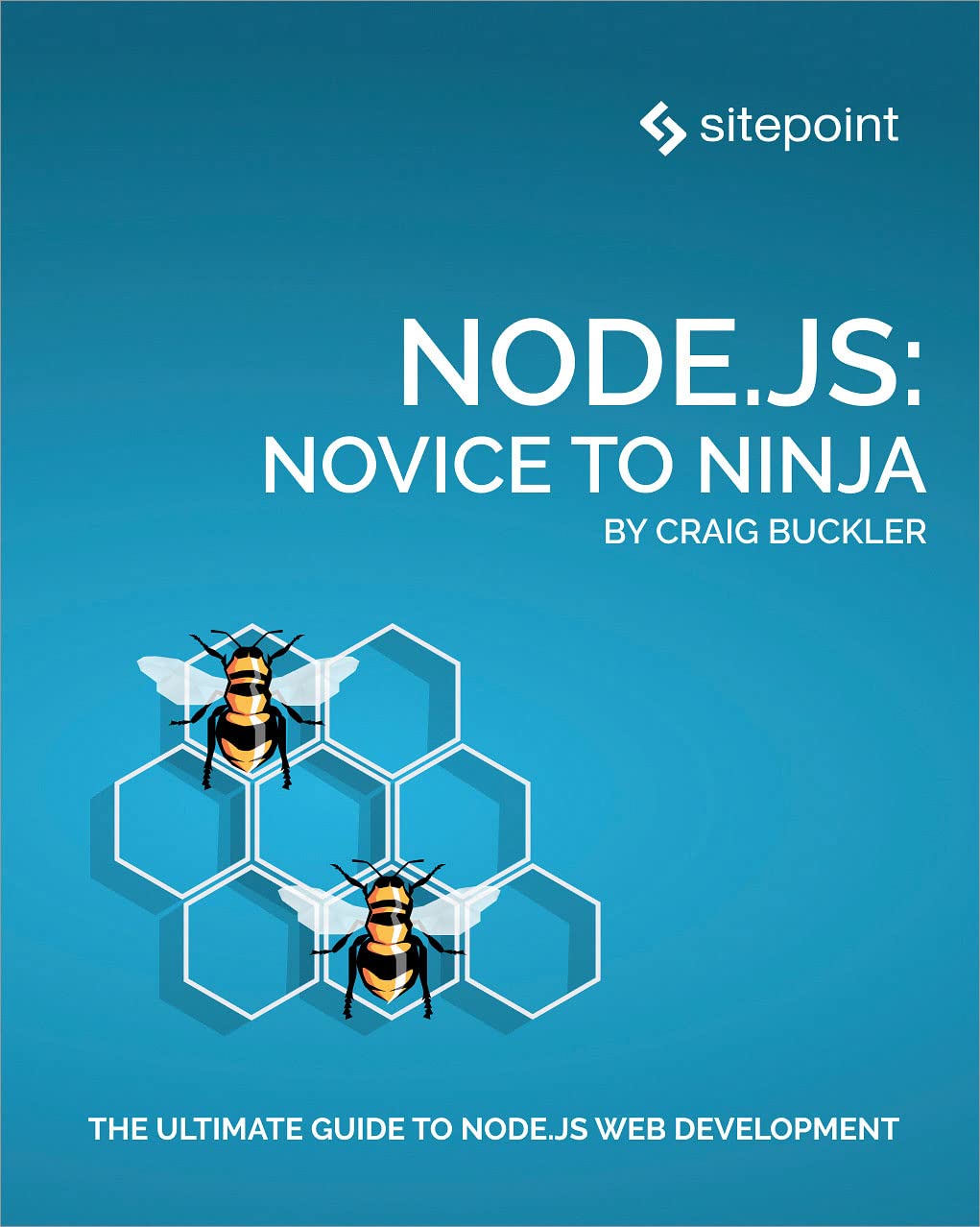 The phenomenal Craig Buckler has created a masterclass of practical, fun, and approachable Node.js lessons. This book starts with the basics and works its way up to the advanced concepts used in applications. It was designed to take a novice programmer all the way to the level required to develop modern web applications in the real world. You’ll cover techniques such as database integration, debugging, and deployment.
We recommend this book for anyone who’s looking to use Node.js to power their app’s backend or start their career as a full stack developer.
Throughout the book, you’ll apply what you learn by building your own multiplayer quiz application to play with your friends.
The phenomenal Craig Buckler has created a masterclass of practical, fun, and approachable Node.js lessons. This book starts with the basics and works its way up to the advanced concepts used in applications. It was designed to take a novice programmer all the way to the level required to develop modern web applications in the real world. You’ll cover techniques such as database integration, debugging, and deployment.
We recommend this book for anyone who’s looking to use Node.js to power their app’s backend or start their career as a full stack developer.
Throughout the book, you’ll apply what you learn by building your own multiplayer quiz application to play with your friends.
Get Programming with Node.js
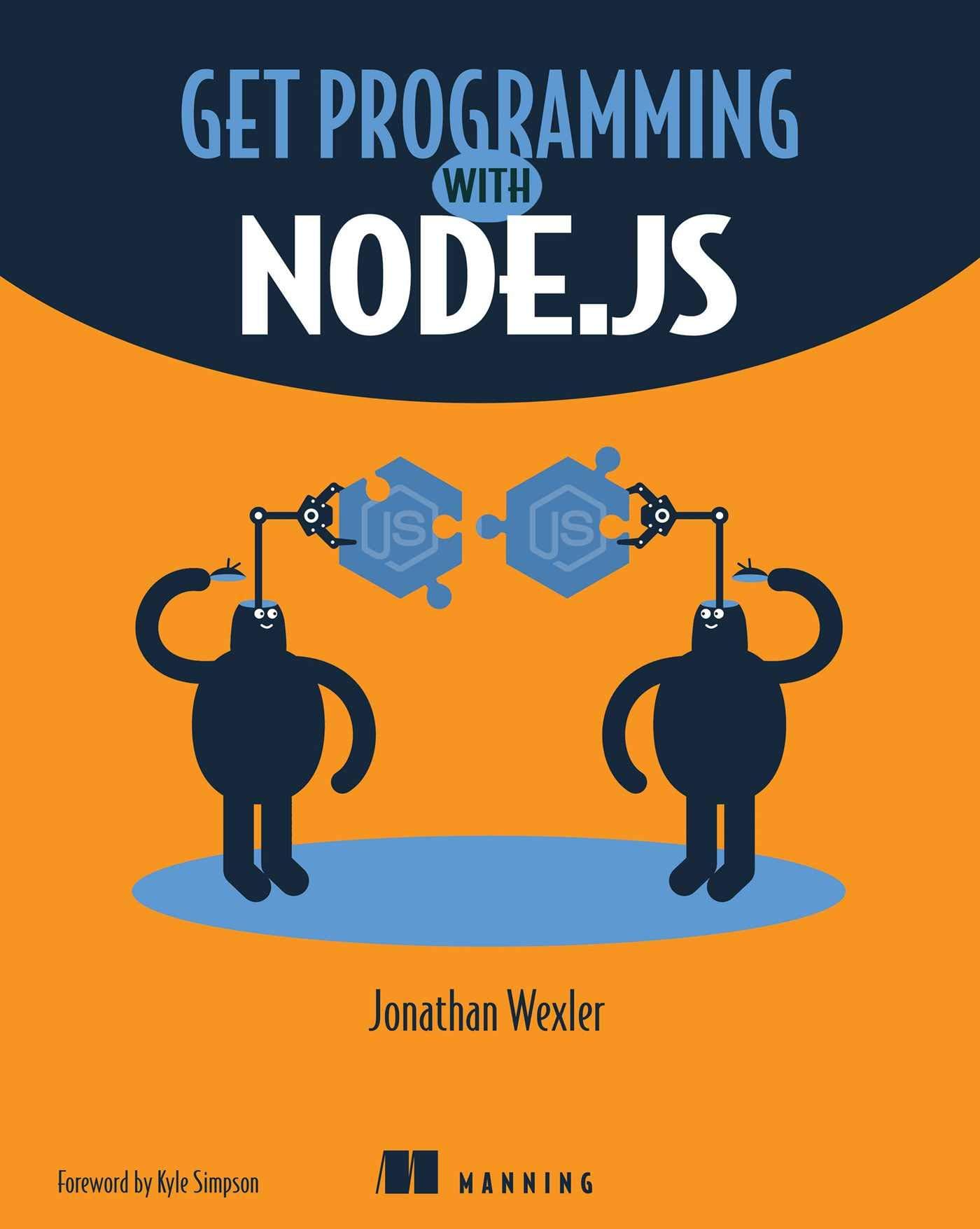
- Author: Jonathan Wexler
- Publishing: first edition (March 15, 2019)
- Paperback: 480 pages
- Ranking on Amazon: 4.4/5 (70 ratings)
Learning Node: Moving to the Server-Side
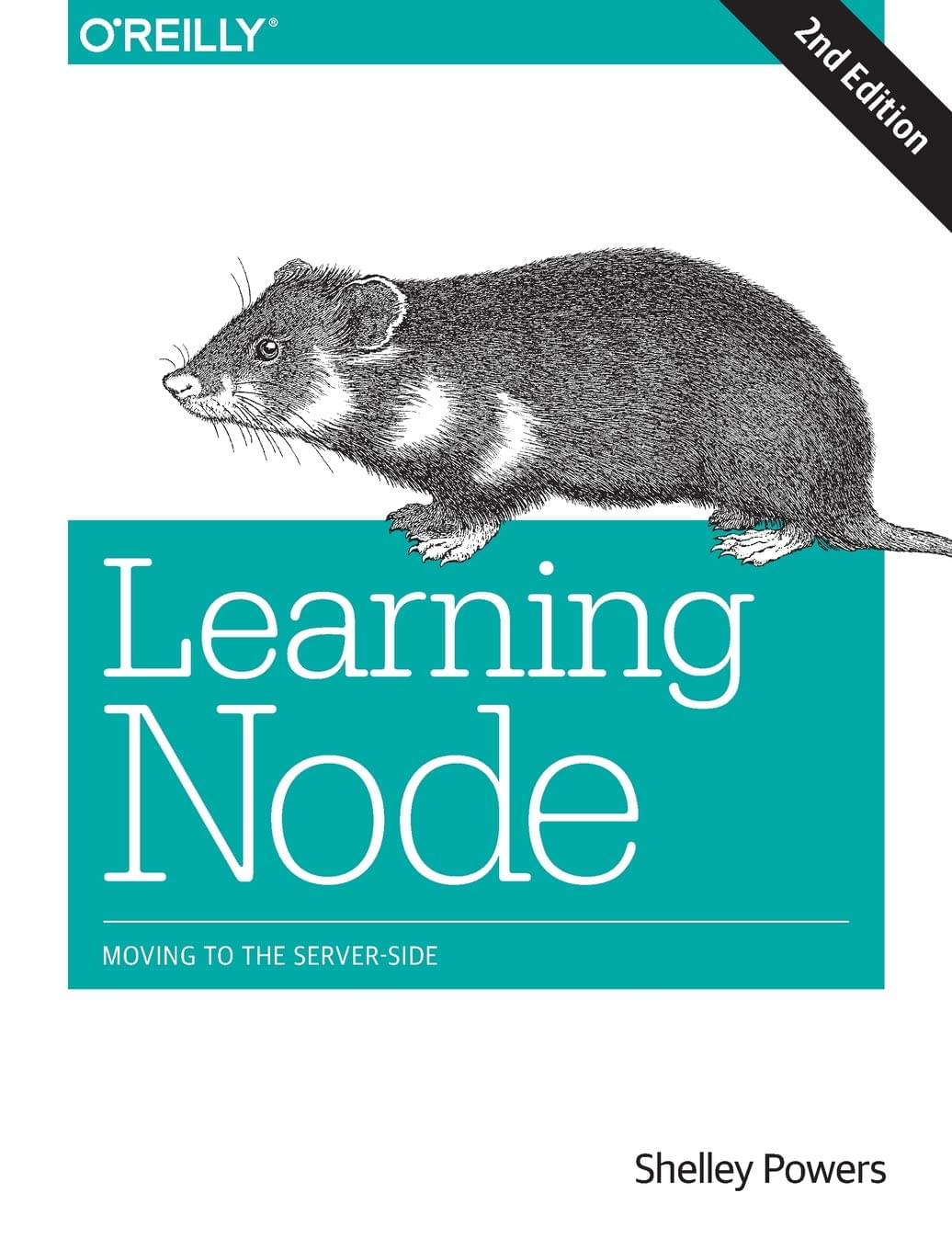
- Author: Shelley Powers
- Publishing: second edition (June 28, 2016)
- Paperback: 288 pages
- Ranking on Amazon: 4.3/5 (41 ratings)
- frameworks and functionality for full-stack development
- module system and packages management support
- code testing with the REPL console
- support for network, security, and sockets
- OS functionality with child processes
- use in microcontrollers, microcomputers, and the Internet of Things
Best Web Development with Node.js Books
Next, we’ll look at some Node.js books that focus on web development.Web Development with Node & Express: Leveraging the JavaScript Stack
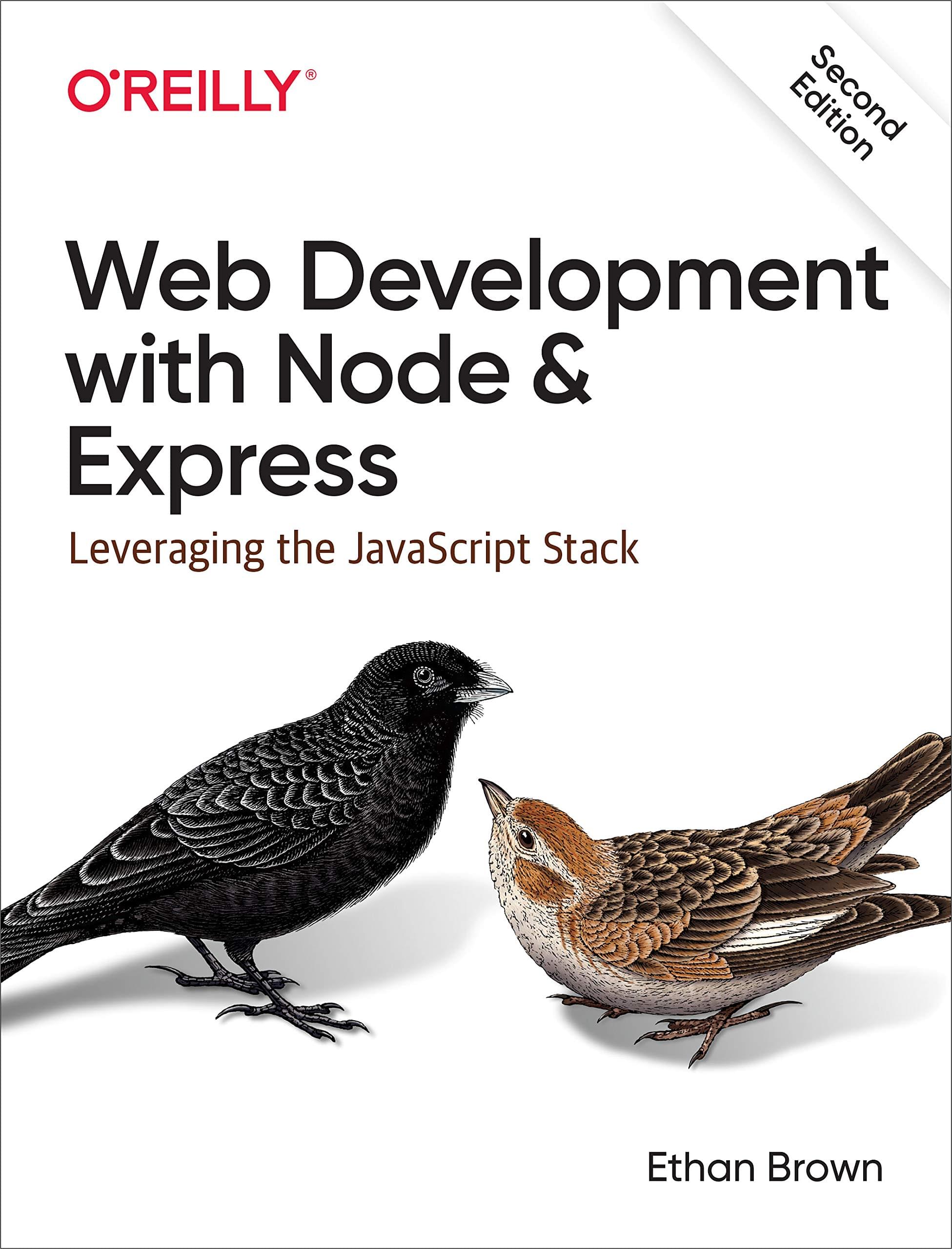
- Author: Ethan Brown
- Publishing: second edition (December 3, 2019)
- Paperback: 346 pages
- Ranking on Amazon: 4.2/5 (68 ratings)
- request and response objects
- templating
- form handling
- cookies and sessions
- middleware
- sending email
- persistence
- routing
Node.js Web Development: Server-Side Web Development Made Easy with Node 14 Using Practical Examples
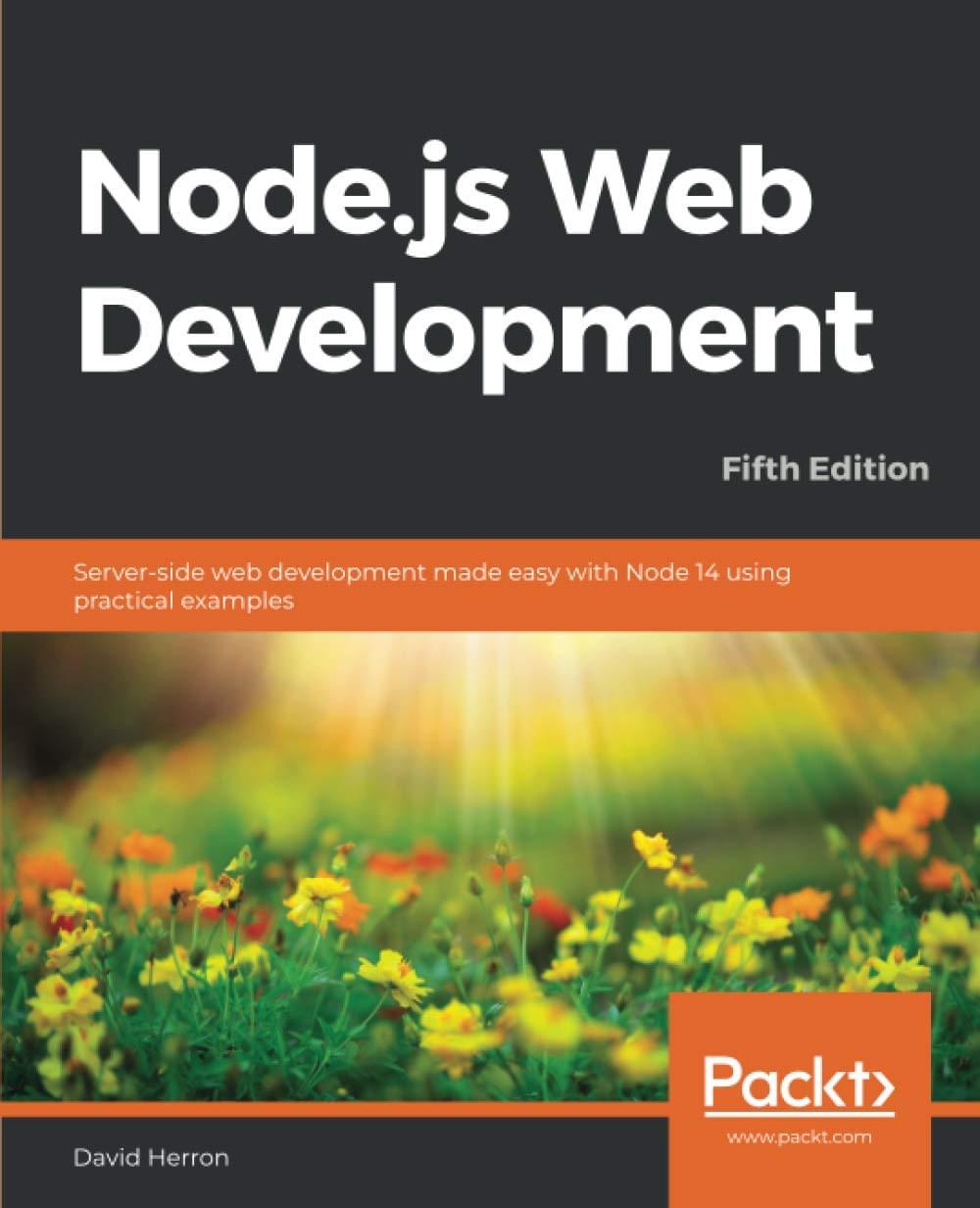
- Author: David Herron
- Publishing: fifth Edition (July 31, 2020)
- Paperback: 760 pages
- Ranking on Amazon: 4.3/5 (81 ratings)
Node Cookbook: Discover Solutions, Techniques, and Best Practices for Server-Side Web Development with Node.js 14
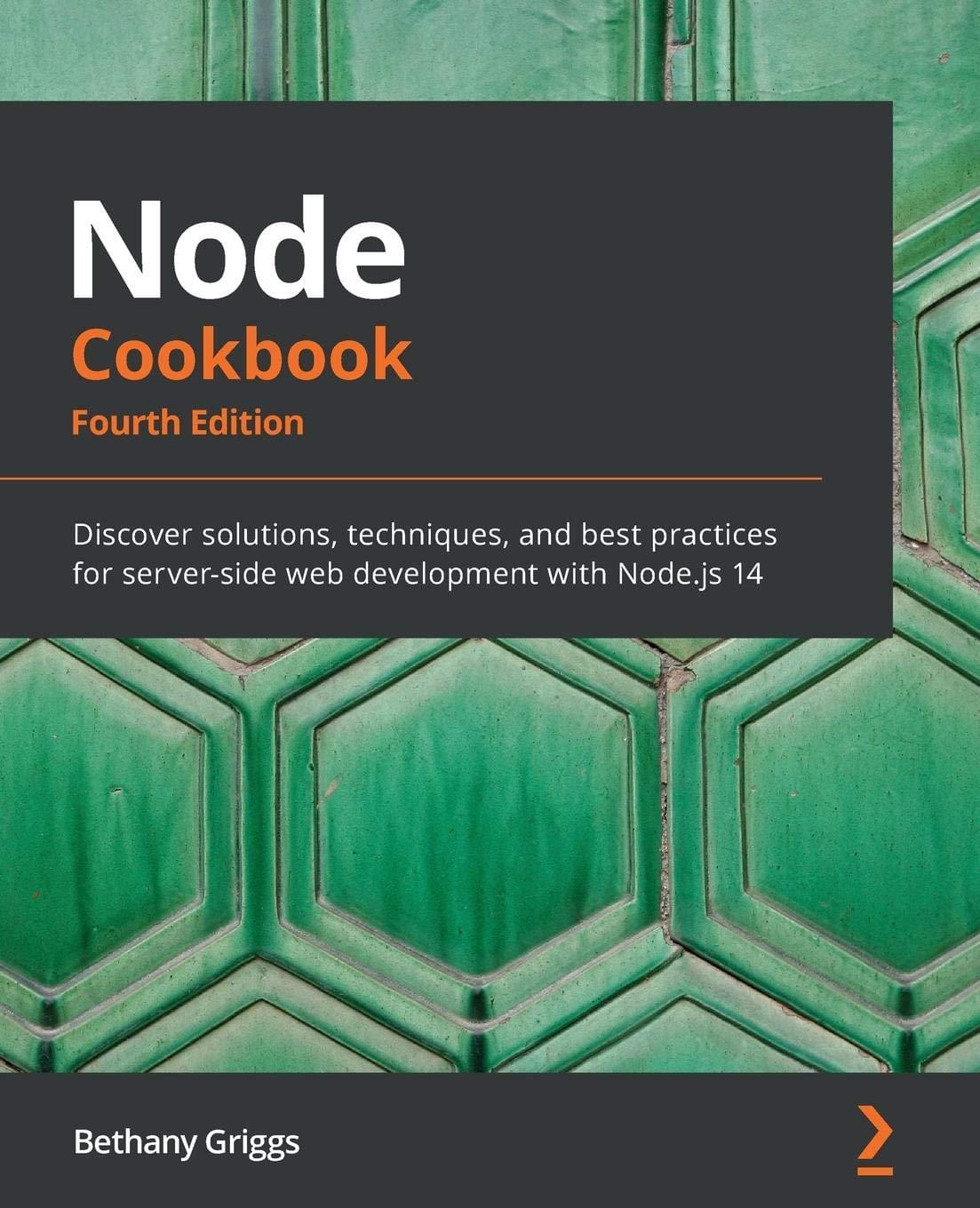
- Author: Bethany Griggs
- Publishing: fourth edition (November 25, 2020)
- Paperback: 512 pages
- Ranking on Amazon: 4.5/5 (60 ratings)
Best Full-stack Node.js Books
Next, we’ll list our favorite Node.js books for full-stack development.Express in Action: Writing, Building, and Testing Node.js Applications
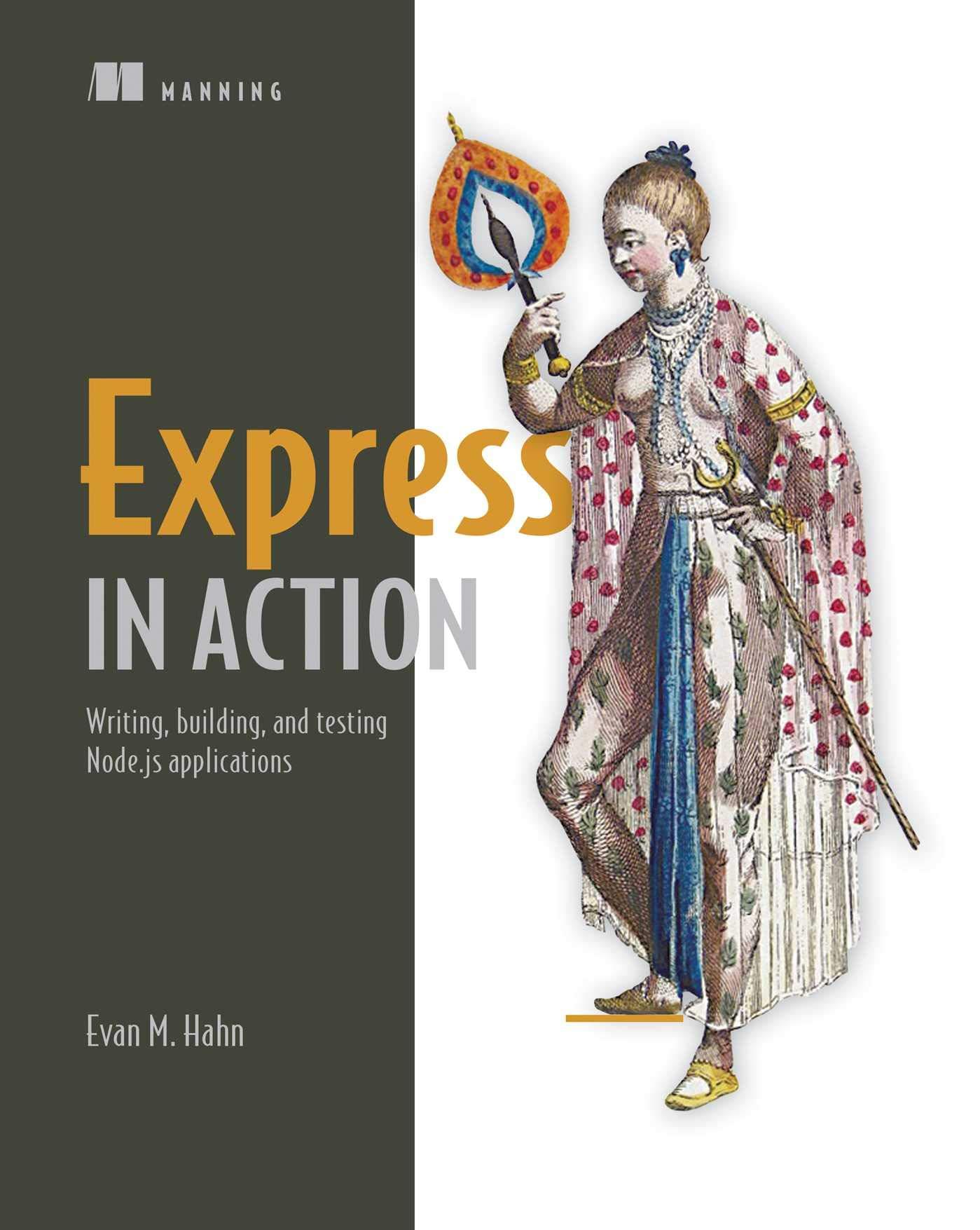
- Author: Evan Hahn
- Publishing: first edition (April 15, 2016)
- Paperback: 256 pages
- Ranking on Amazon: 4.3/5 (50 ratings)
Beginning Node.js, Express & MongoDB Development
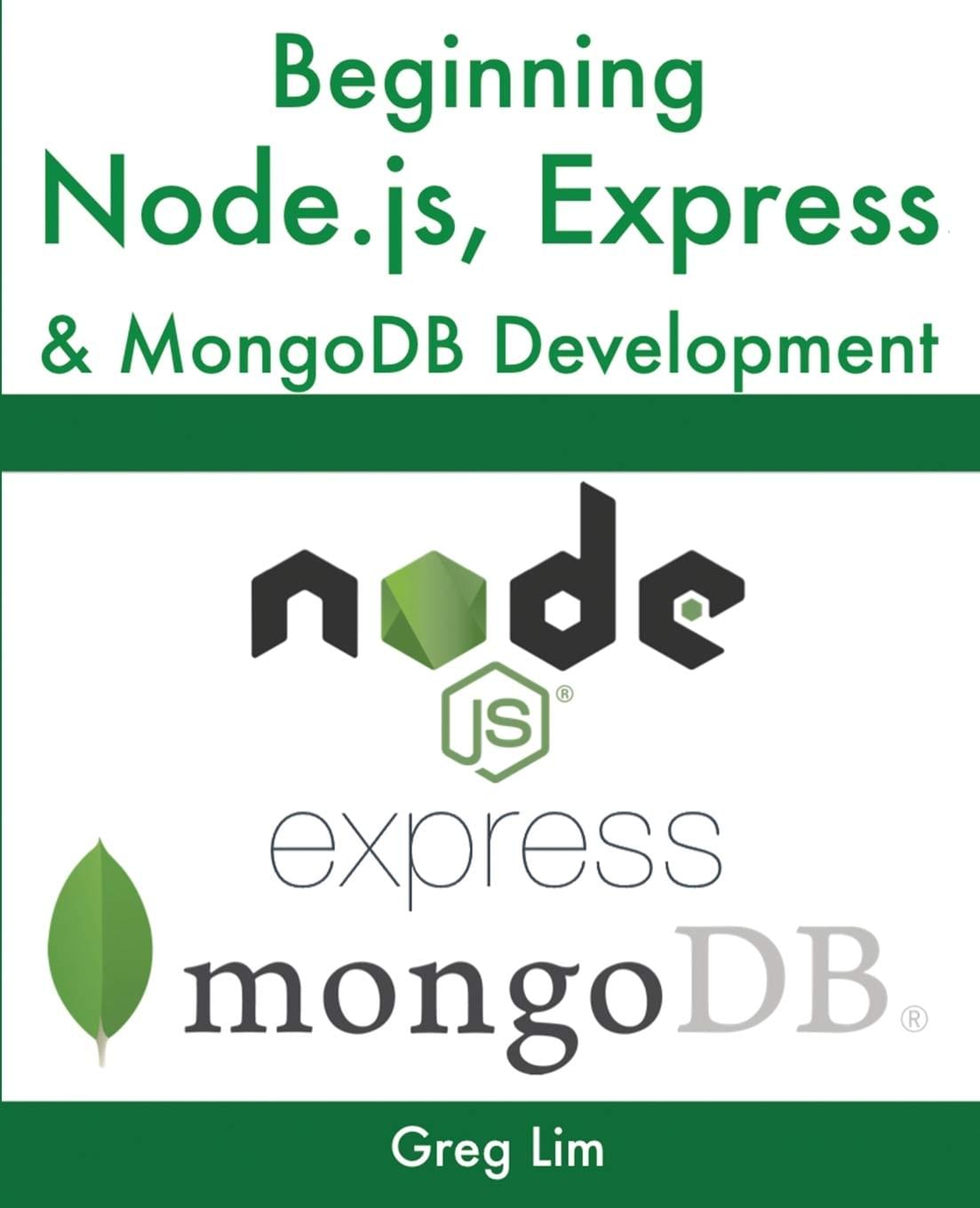
- Author: Greg Lim
- Publishing: independent (September 1, 2020)
- Paperback: 152 pages
- Ranking on Amazon: 4.2/5 (224 ratings)
Beginning MERN Stack: Build and Deploy a Full Stack MongoDB, Express, React, Node.js App
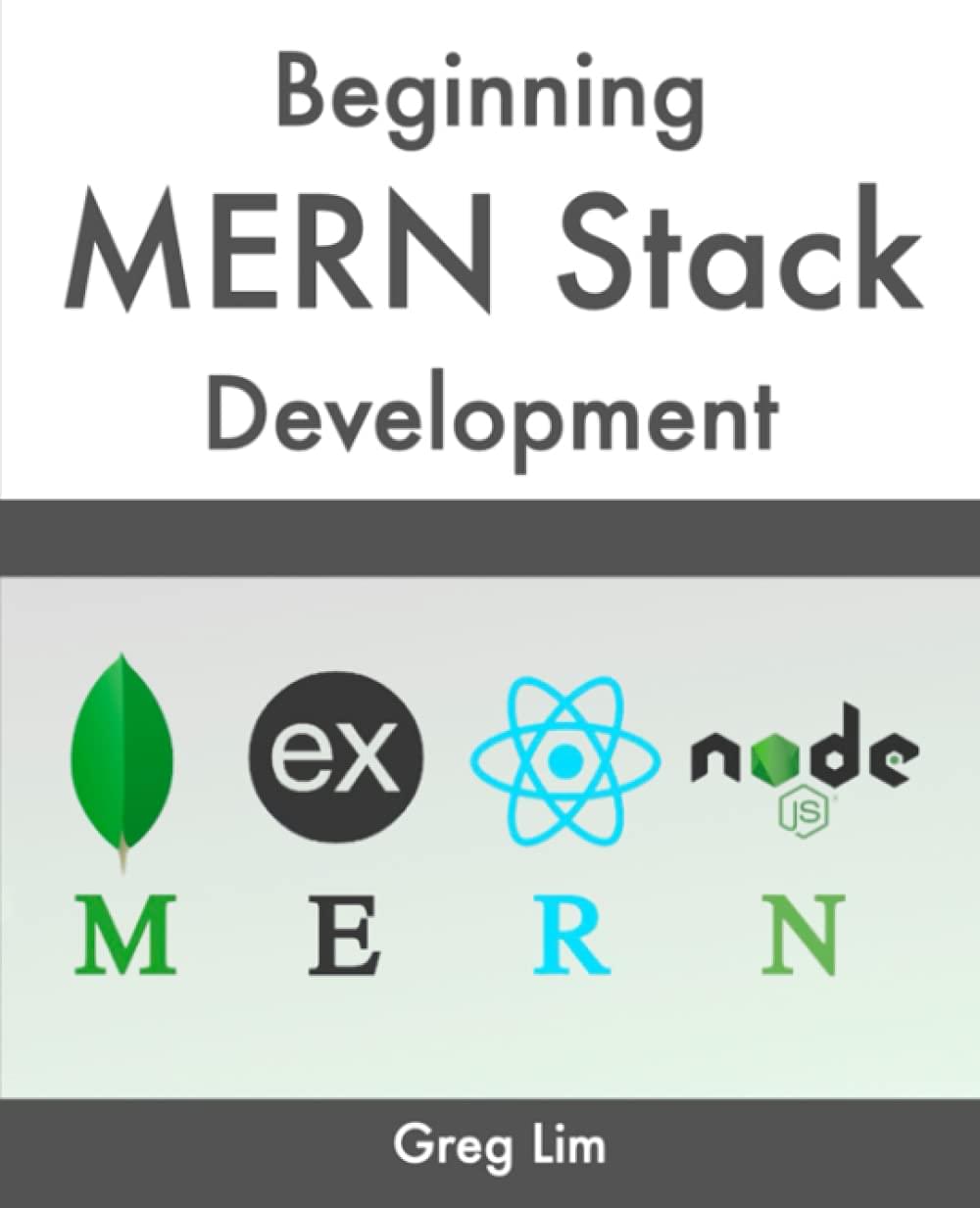
- Author: Greg Lim
- Publishing: independent (June 21, 2021)
- Paperback: 159 pages
- Ranking on Amazon: 4.2/5 (61 ratings)
Full-Stack React Projects: Learn MERN Stack Development by Building Modern Web Apps Using MongoDB, Express, React, and Node.js
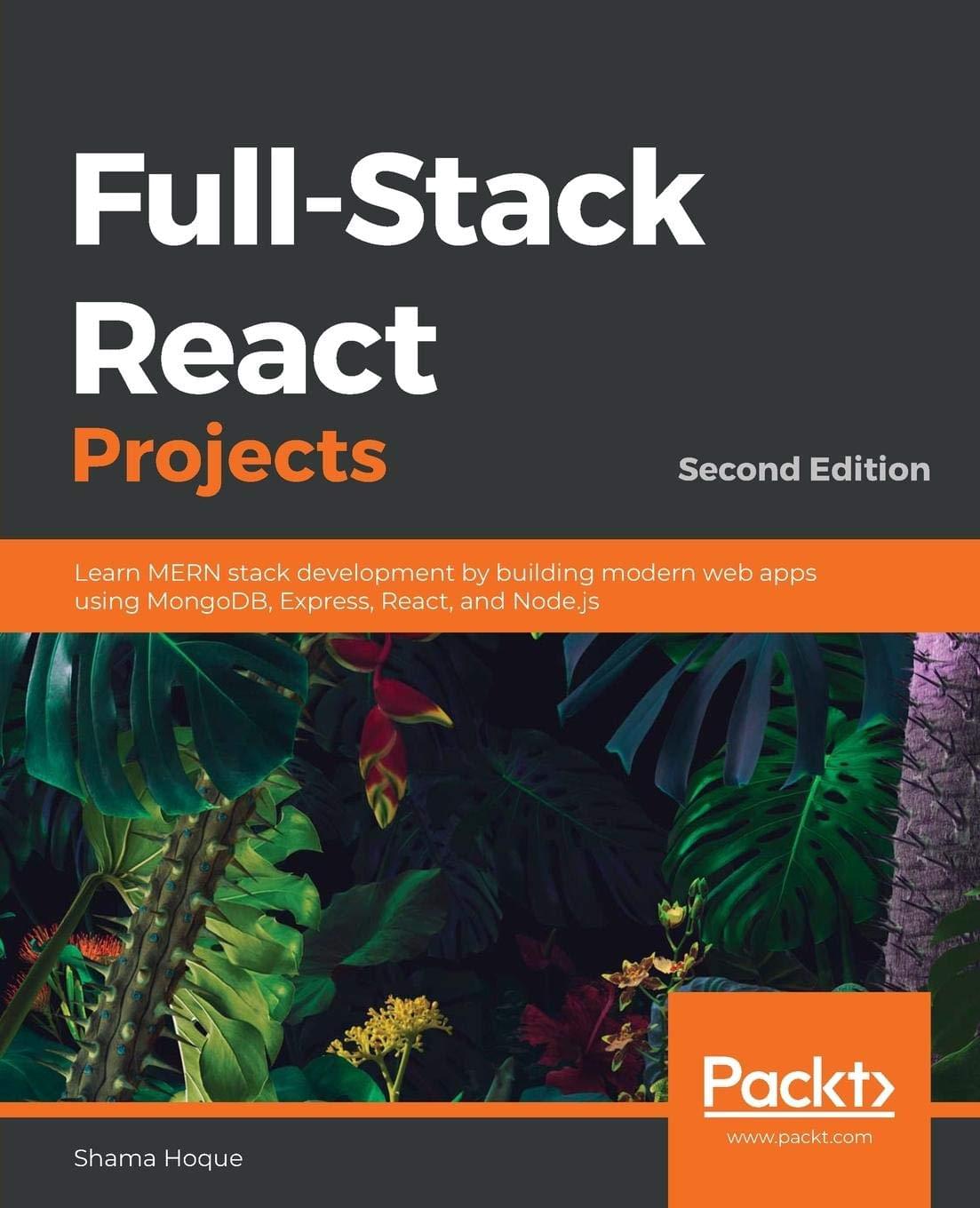
- Author: Shama Hoque
- Publishing: second edition (April 17, 2020)
- Paperback: 716 pages
- Ranking on Amazon: 4.1/5 (66 ratings)
Pro MERN Stack: Full Stack Web App Development with Mongo, Express, React, and Node
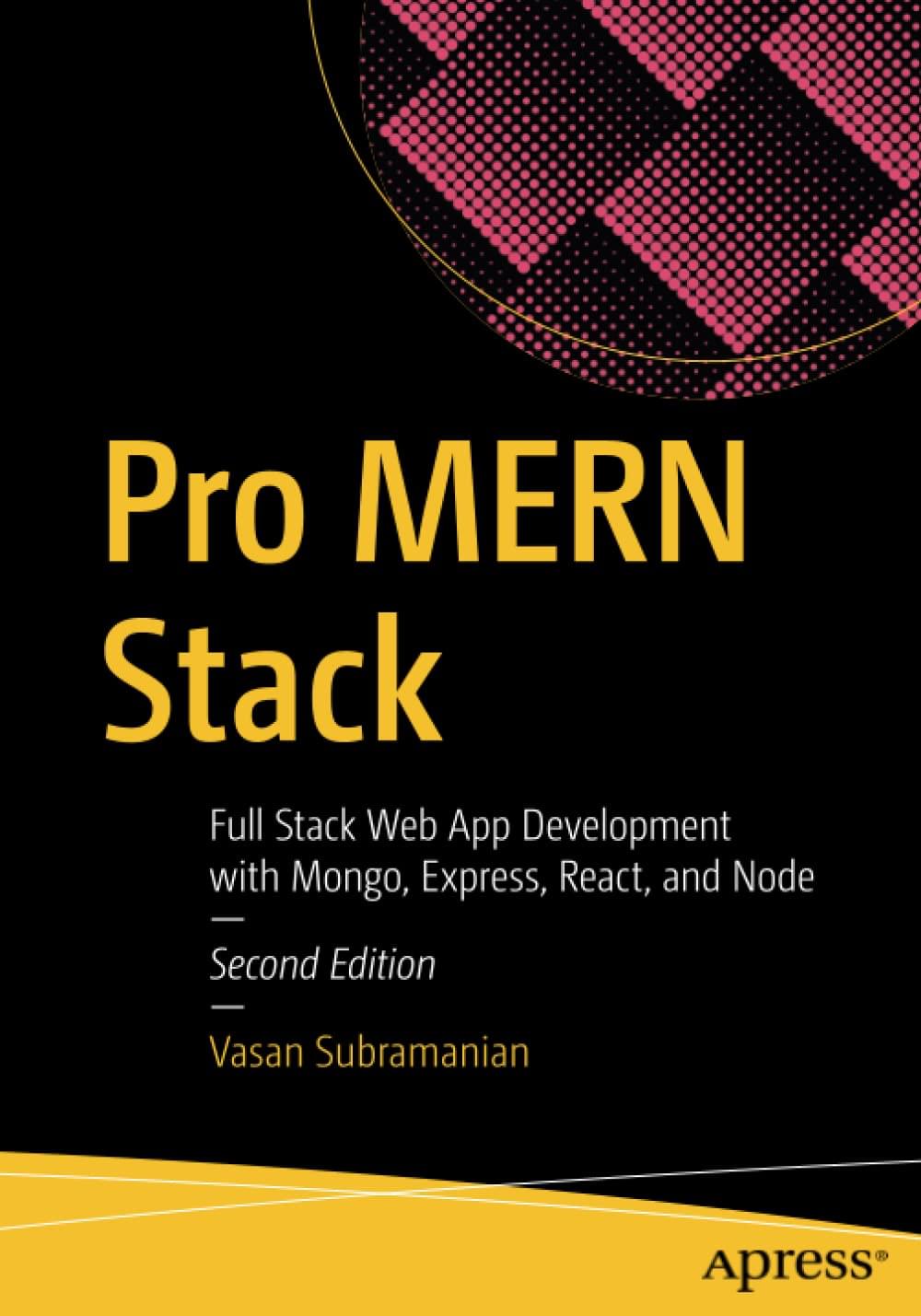
- Author: Vasan Subramanian
- Publishing: second edition (May 13, 2019)
- Paperback: 565 pages
- Ranking on Amazon: 4.2/5 (34 ratings)
Best Advanced Node.js Books
Lastly, here’s our pick of Node.js books for advanced learners.Node.js Design Patterns: Design and Implement Production-Grade Node.js Applications Using Proven Patterns and Techniques
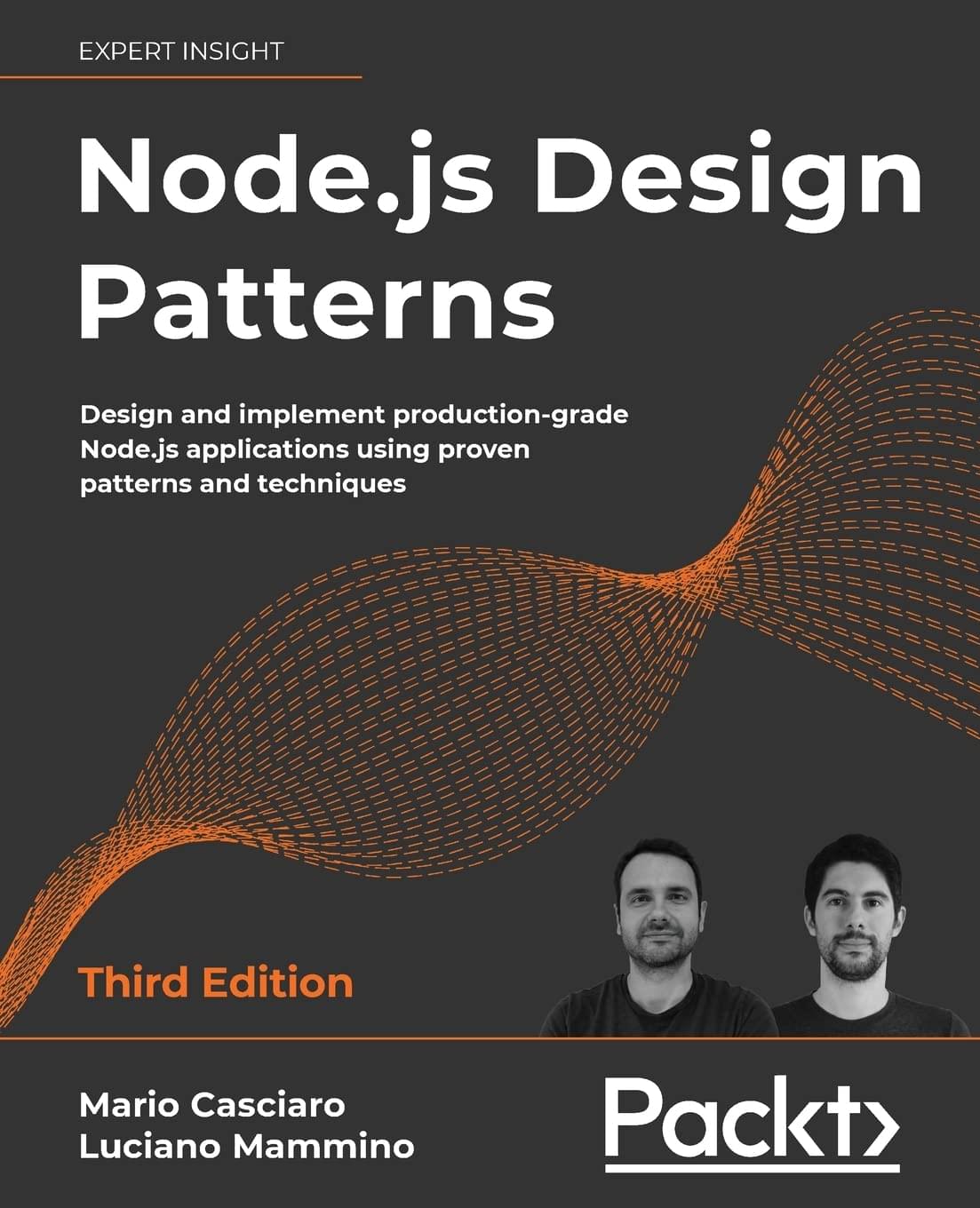
- Authors: Mario Casciaro and Luciano Mammino
- Publishing: third edition (July 29, 2020)
- Paperback: 664 pages
- Ranking on Amazon: 4.6/5 (227 ratings)
Distributed Systems with Node.js: Building Enterprise-Ready Backend Services
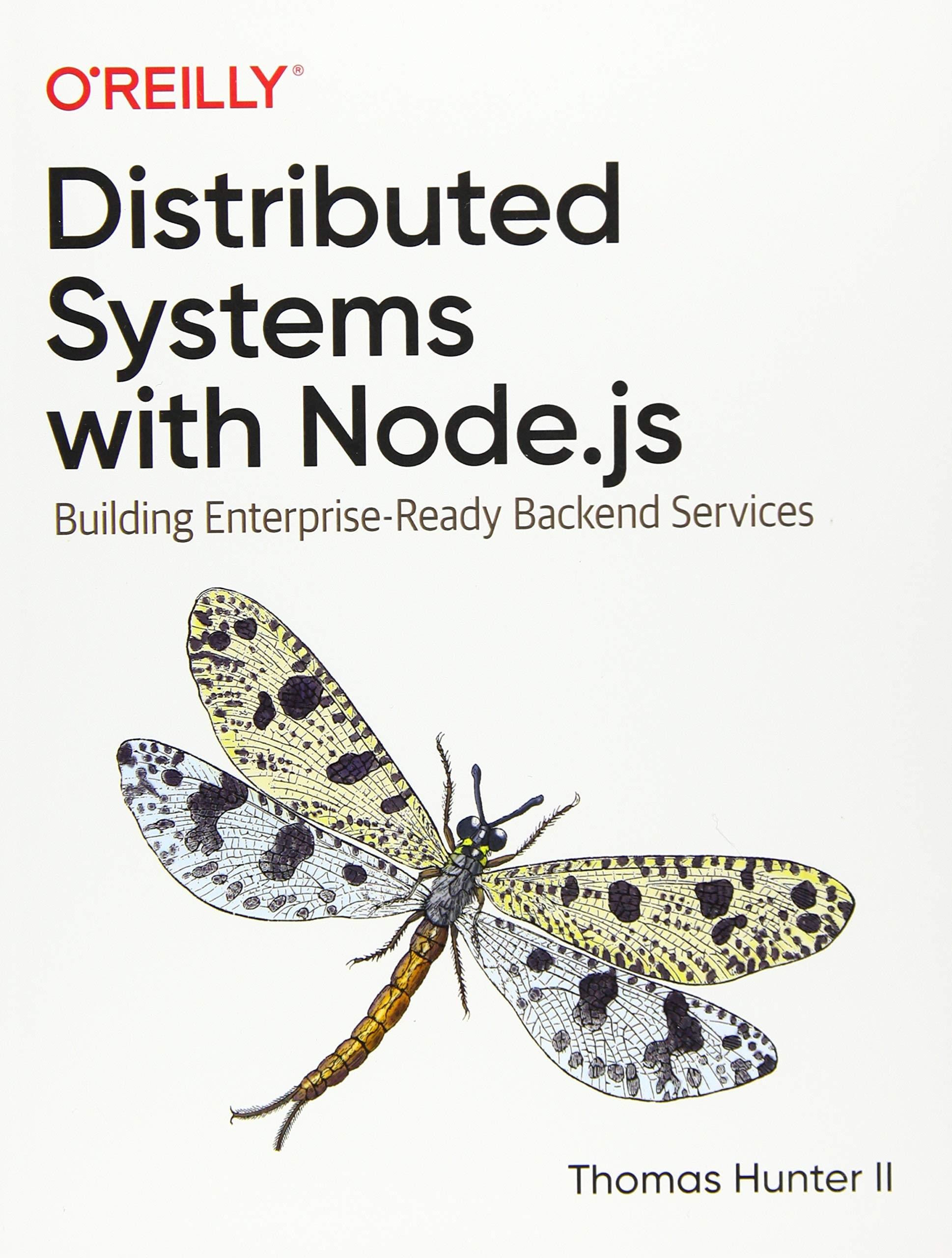
- Author: Thomas Hunter II
- Publishing: first edition (November 24, 2020)
- Paperback: 377 pages
- Ranking on Amazon: 4.5/5 (71 ratings)
- Learn why running redundant copies of the same Node.js service is necessary
- Know which protocol to choose, depending on the situation
- Fine-tune your application containers for use in production
- Track down errors in a distributed setting to determine which service is at fault
- Simplify app code and increase performance by offloading work to a reverse proxy
- Build dashboards to monitor service health and throughput
- Find out why so many different tools are require when operating in an enterprise environment
Extra: The SitePoint Library
 SitePoint Premium gives you instant access to tons of books on the SitePoint Library, with many Node.js books and courses, including Node.js: Novice to Ninja by Craig Buckler (also on Amazon).
SitePoint Premium gives you instant access to tons of books on the SitePoint Library, with many Node.js books and courses, including Node.js: Novice to Ninja by Craig Buckler (also on Amazon).
Final Thoughts
Node.js is a well established and popular platform for server-side web development, and it’s increasingly used in the enterprise world, as it allows developers to quickly and easily build powerful backend services. In this roundup, we’ve selected books that cover a fair amount of what Node.js can do. We hope these books can help you get started, and that you’ll find something here to help you become a top-level Node.js expert. 🥇🚀Frequently Asked Questions (FAQs) about Node.js Books
What are the key factors to consider when choosing a Node.js book?
When choosing a Node.js book, consider your level of expertise. Beginners should look for books that cover the basics of Node.js, while more advanced users may want books that delve into complex topics. The book’s relevance to current Node.js versions is also crucial, as outdated information can lead to confusion. Additionally, consider the author’s reputation and the book’s reviews. Authors with a strong background in Node.js will likely provide more accurate and insightful information. Lastly, consider the book’s teaching approach. Some books use a hands-on approach with projects and exercises, while others are more theory-based.
Are online resources sufficient for learning Node.js, or do I need a book?
Online resources can be a great starting point for learning Node.js, offering interactive tutorials and up-to-date information. However, books often provide a more structured and in-depth approach to learning. They can offer comprehensive coverage of Node.js, from basic concepts to advanced topics, often with real-world examples and exercises. A combination of both can be beneficial for a thorough understanding of Node.js.
How can I ensure the Node.js book I choose is up-to-date?
Check the publication date of the book. Node.js is constantly evolving, so books published several years ago may not cover the latest features. Also, look for books that specifically mention they cover the latest version of Node.js. Reading reviews can also give you an idea of whether the book’s content is current.
Can I learn Node.js without prior programming experience?
While it’s possible to learn Node.js without prior programming experience, it can be challenging. Node.js is a JavaScript runtime, so understanding JavaScript fundamentals will make learning Node.js much easier. There are many books available that cater to beginners, providing a step-by-step guide to JavaScript and Node.js.
How long does it typically take to learn Node.js?
The time it takes to learn Node.js can vary greatly depending on your prior programming experience, the amount of time you can dedicate to learning, and the complexity of the concepts you wish to understand. For someone with a solid understanding of JavaScript, it might take a few weeks to become comfortable with Node.js basics. However, mastering Node.js and its associated tools and libraries can take several months or more.
What are some common applications of Node.js?
Node.js is commonly used for building scalable network applications, such as web servers, real-time chat applications, and data-intensive real-time applications (DIRT). It’s also used in Internet of Things (IoT) projects, microservices architecture, and for building APIs.
Are there Node.js books that focus on specific applications or industries?
Yes, there are Node.js books that focus on specific applications or industries. For example, some books focus on using Node.js for web development, while others may focus on its use in data analysis or IoT. When choosing a book, consider your interests and the specific skills you want to acquire.
What are some challenges I might face when learning Node.js?
Some common challenges when learning Node.js include understanding asynchronous programming, dealing with callback hell, understanding event-driven programming, and managing Node.js’s non-blocking I/O model. However, many books and resources are available to help you overcome these challenges.
Can I contribute to the Node.js community as a beginner?
Absolutely! The Node.js community is open and welcoming to contributors of all skill levels. As a beginner, you can contribute by reporting bugs, improving documentation, or even contributing code. Participating in the community is a great way to learn and grow as a Node.js developer.
Are there any prerequisites for learning Node.js?
While you can start learning Node.js without any prior knowledge, having a basic understanding of JavaScript and general programming concepts will make the learning process smoother. Familiarity with command line interfaces and understanding how servers work can also be beneficial.
 Lucero del Alba
Lucero del AlbaLucero is a programmer and entrepreneur with a feel for Python, data science and DevOps. Raised in Buenos Aires, Argentina, he's a musician who loves languages (those you use to talk to people) and dancing.







